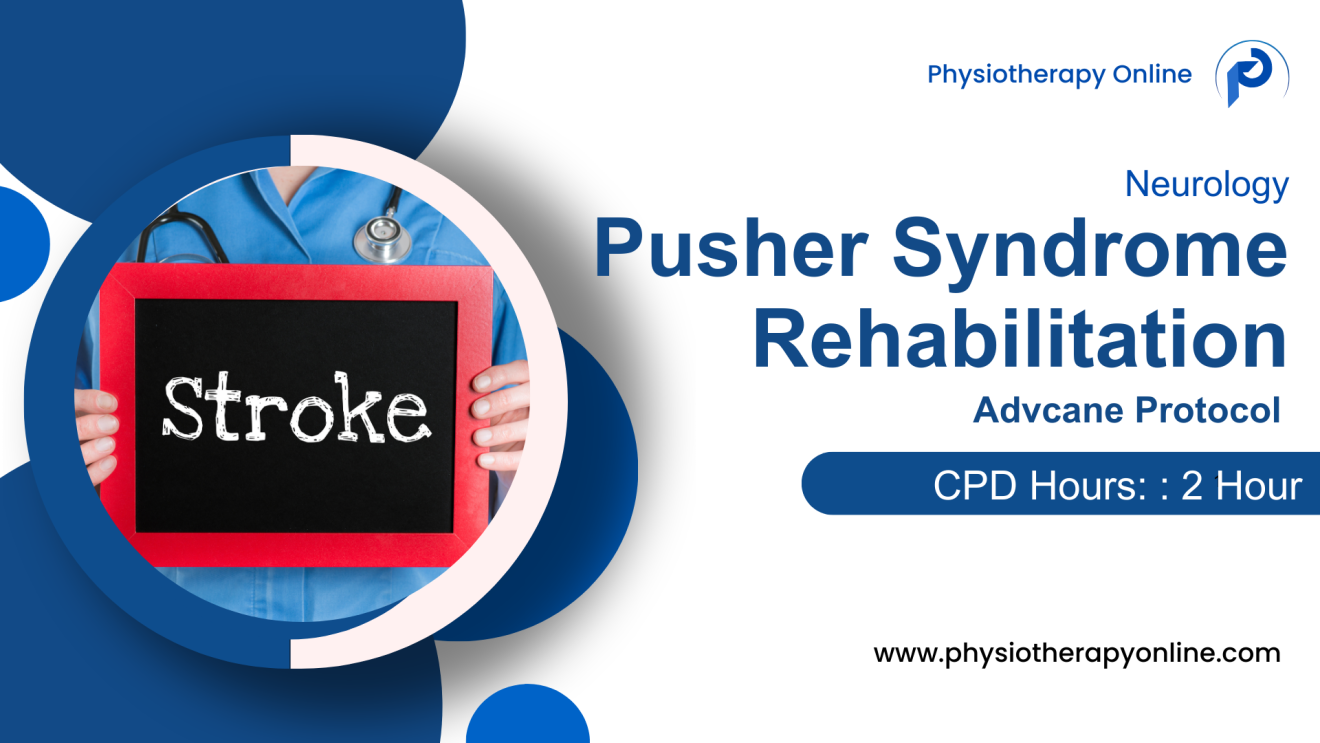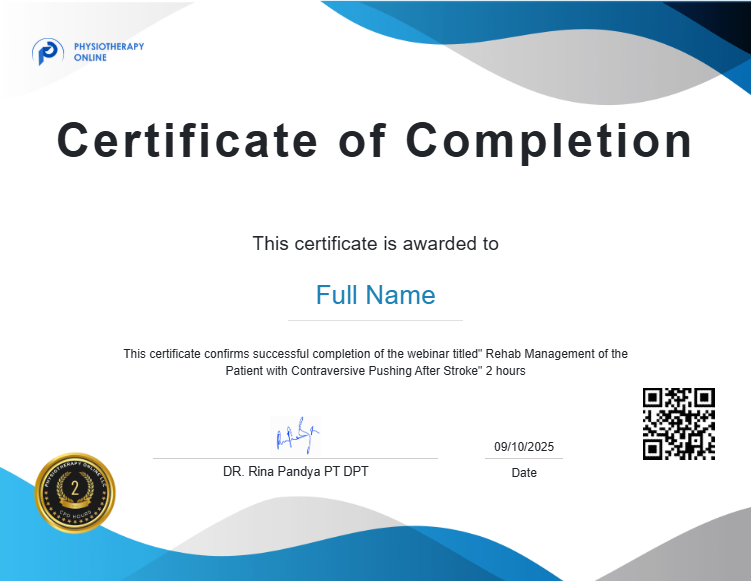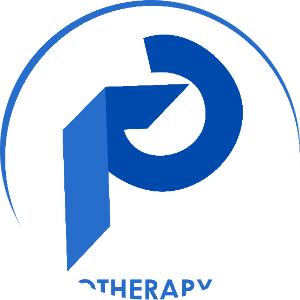About Course
Protocol for Pusher Syndrome in Stroke Aims to
This intermediate-level course is designed for therapists who are interested in knowledge of updated research to guide best practices for the management of the patient with controversies pushing after stroke. Prevalence, expected outcomes and limitations to progress and discharge planning with this population will be reviewed. In addition, an evidence-based assessment specific to controversies pushing will be introduced and demonstrated. Finally, current literature will be provided on treatment and the instructor will guide participants regarding best practices for optimal outcomes.
Learning Objectives
At the end of this course, the participant will be able to:
- Define “contraversive pushing” and discuss the documented pathophysiology behind this phenomenon.
- Identify updated research on the prevalence of pushing, expected outcomes, and how this affects the management of this population.
- Explain research available on treatment for controversies pushing.
- Prevalence, outcomes, and limitations to management
- Assessment using the Burke Lateropulsion Scale
- Apply research to demonstrate techniques for effective treatment strategies for contraversive pushing.
Who Should Enroll
- Physiotherapist
- Neuromuscular specialists
- Nurses
- Occupational Therapist
CPD Credit Hours
2. hours
Resources
- 30 Days Access to Learning Resources
- Downloadable Course Material
- CPD Certificate
Presenter
Speaker Bio: Jaime Gillespie, PT, DPT
Jaime graduated from University of Kansas Medical Center in 2010 with a Doctorate in Physical Therapy. Currently, she is practicing as a Research Physical Therapist for the Baylor Scott & White Research Institute with an innovative team focused on advancement of research in neurological rehabilitation and medicine. For 11 years prior, she practiced in inpatient rehabilitation at Baylor Scott & White Institute for Rehabilitation primarily working with patients with stroke. She has taught multiple continuing education courses at BSWIR on the management of the patient post-stroke and acts as a mentor across the continuum. Additionally, Jaime teaches as an adjunct instructor for neurological courses at Texas Women’s University in the Doctorate of Physical Therapy program. She has education in Neuro-IFRAH and advanced certification from Ekso Bionics to treat patients using the robotic exoskeleton. Jaime’s current and past research efforts and publications have emphasis in areas including rehabilitation health literacy, post-stroke and post-SCI rehabilitation. Nationally, Jaime has presented invited presentations, scientific posters, and educational symposiums in various conferences including Combined Sections Meeting and the American Congress of Rehabilitative Medicine. Jaime is passionate about working with the neurological population as well as advancing research to improve outcomes for these patients.
Disclaimer: Our online physiotherapy courses meet the criteria and guidelines for CPD (Continuing Professional Development). The CPD hours indicated on the certificate contribute towards fulfilling professional standards and requirements necessary for CPD audits conducted by the HCPC and AHPRA. These CPD hours are important for maintaining physiotherapy registration and ensuring compliance with CPD audit and Physiotherapy registration renewal processes. Our courses are recognized as valuable continuing education resources across the UK, Australia, New Zealand, and throughout Asia and the Middle East.


